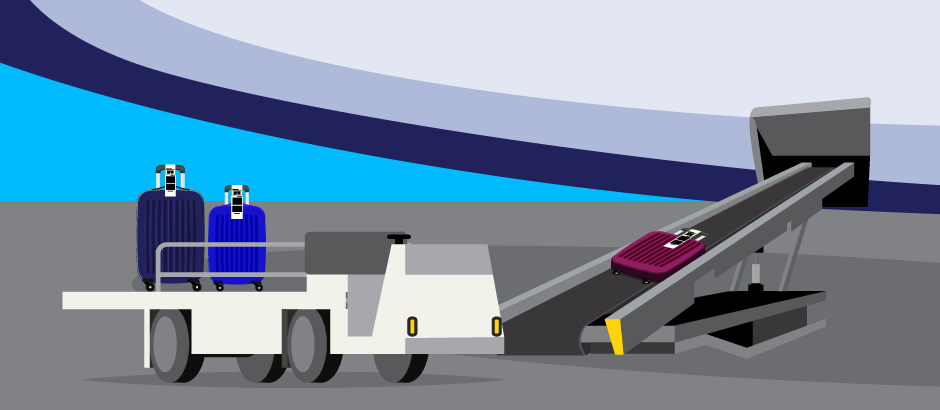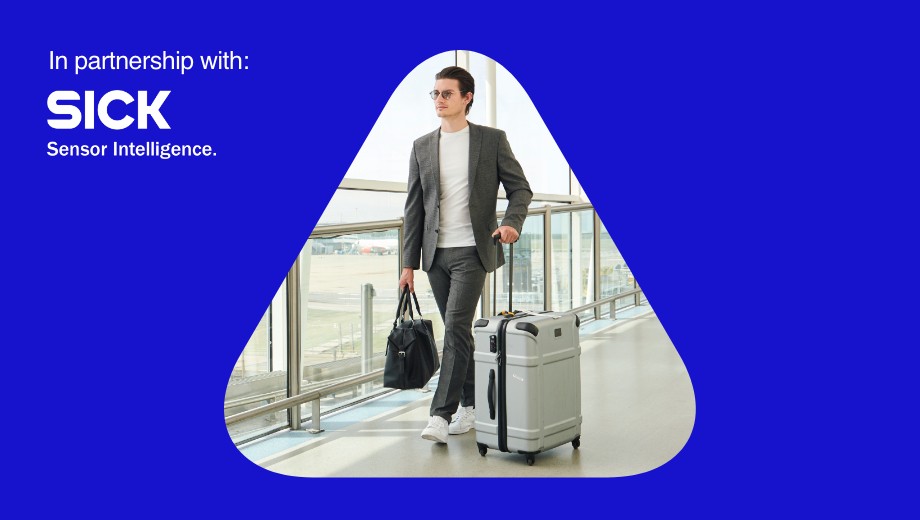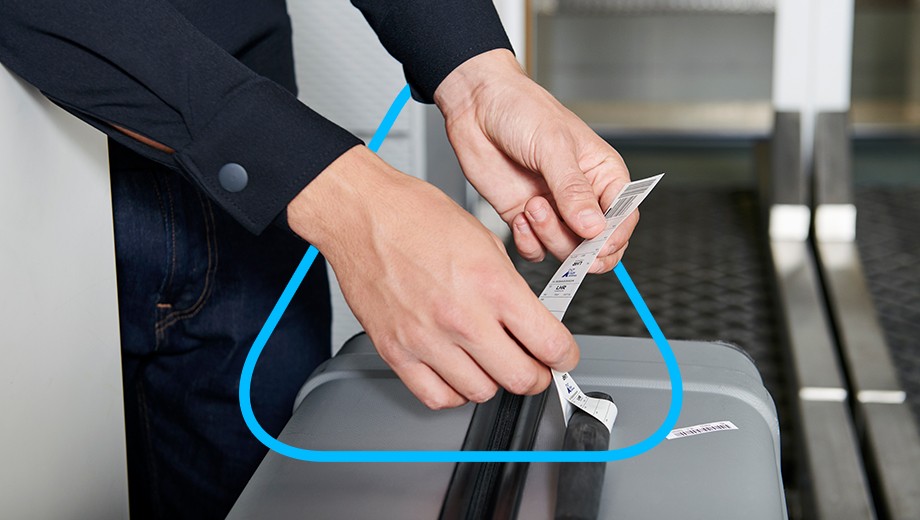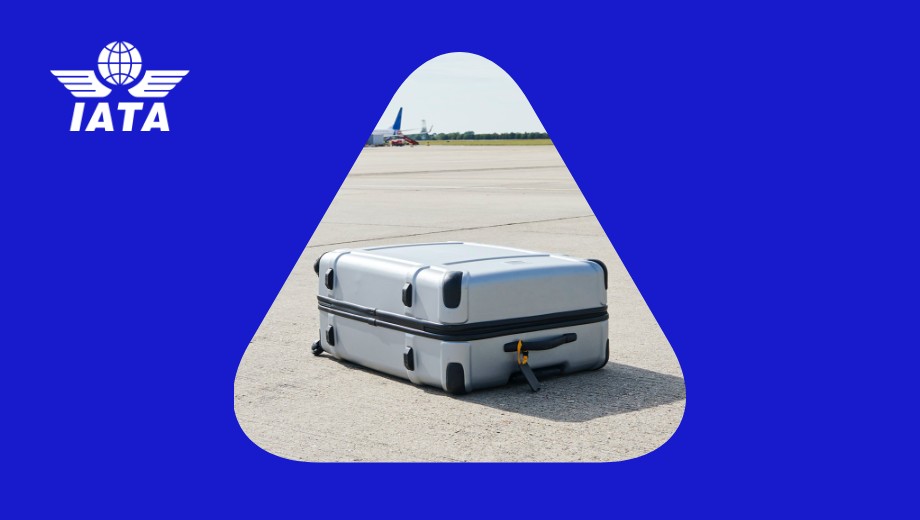Making mishandling even more rare
Airlines reduced baggage mishandlings to an impressive .06 percent of all handled bags in 2018. But that figure still amounts to tens of thousands of bags, and lost luggage still consistently tops the list of passenger complaints. For airlines, a mishandled suitcase is expensive: Tracing one bag and delivering it to its owner costs about $100. The total cost industry-wide is projected to climb as high as $2.7 billion in 2020.
By enabling more accurate and comprehensive tracking, the aim of RFID-enabled tags is to reduce the current mishandled bag count of 24.8 million bags per year to nearly zero. SITA, which provides IT solutions to the airline industry, estimates that the rate of six mishandled bags per 1,000 will remain steady unless newer technologies like RFID are applied.
RFID also puts some power—or at least some knowledge—back in the hands of passengers by letting airlines inform customers about their luggage’s whereabouts in real time via mobile app. Customers are keen on the idea: According to IATA’s research, eighty-four percent of passengers would like some way to track their bags en route.
A win for all airlines
RFID also makes sense for the 24 percent of airlines that don’t belong to IATA. With its improved accuracy and speed, RFID can increase baggage throughput by up to 18 percent. It can cut ramp loading time by as much as four minutes per aircraft turn, and labor can be reduced by as much as one FTE per turn. For low-cost carriers that live and die by aircraft turn, RFID can make a dramatic difference in efficiency and the bottom line. The technology can help reduce airlines’ carbon footprints as well, by substantially reducing the transport necessary to deliver lost bags to their owners.
RFID-enabled tags are also good for baggage handlers. Since a line of sight is unnecessary for scanning, handlers don’t have to lift luggage or physically change its orientation to aim a handheld scanner at a tag, so there’s significantly less chance of injury. In fact, RFID reduces injury rates by 21 percent.
And in addition to saving costs and reducing injuries, deploying RFID can help bump up revenue from checked baggage, since passengers are more likely to pay that additional cost when they’re confident that their bag will arrive when they do.
Proving the concept at Delta
Projections of RFID’s advantages have been borne out at Delta, one of the world’s largest airlines. According to ramp data from its main hubs, RFID-enabled tags have reduced luggage loading time by three minutes, on average. They have reduced the average number of baggage handlers from four to three, and reduced injuries among handlers by 21 percent. Delta has also been able to recover from weather events more quickly, because RFID makes it faster and easier to locate and re-route backlogged bags. Through it all, customers get regular updates on their bags’ status via mobile app. All of this adds up to happier passengers, healthier employees, and substantial cost savings.
When it comes to RFID, we’ve earned our wings
At Avery Dennison, we’ve worked with IATA for years through its Strategic Partnership Program, helping the organization explore RFID. Now we’re also working with airports, airlines, tag converters and system integrators as the industry moves toward implementation. We’re a go-to partner for a number of reasons:
Our tags are IATA-compliant. We purpose-build our tags for baggage tracking. They fully comply with resolutions 740 and 753, and with recommended practice 1740c, which, together define the standards for RFID-based tags and systems.
We’re a leader in RFID. We’ve been driving RFID adoption in aviation and other industries since 2004. Today, we’re the world’s largest UHF RFID provider, with more than 20 billion tags produced and the largest, most reliable range of solutions. We've been involved with most major RFID deployments worldwide, proving that we can deliver often complex solutions anywhere, at any volume, at a market-leading price. We’re not just supplier. We’re a consultant and collaborator. We have a long history of working hand-in-hand with converters and brands to do whatever it takes to ensure success. We advise on solutions and work closely with system integrators to make sure our products integrate flawlessly with RFID readers and software. In all, we’re there for our customers as a trusted guide, from initial testing to wide-scale rollout.
We never stop innovating. Our global innovation centers—including three labs dedicated exclusively to RFID— employ nearly 300 engineers and scientists who refine our existing products and invent new ones to solve specific customer challenges. We also practice open collaboration to leverage the best ideas from across industries. As of this writing, we’re testing a smart new inlay designed specifically for baggage tags. Companies use our products with confidence. Avery Dennison has been in business for more than 80 years. Our long record of designing and manufacturing RFID tags enables us to deliver high-quality, rigorously tested products that are consistently dependable. We guarantee that 100 percent of the inlays we deliver will function.
We’re near airports worldwide. Our global network of manufacturing and distribution facilities allows us to offer the industry’s fastest response and delivery times.
There’s time to get it right
While this month’s resolution doesn’t specify a deadline for implementation, IATA has suggested four years as a timeframe, allowing for incremental adoption rather than forcing sudden, wholesale change. That makes sense. Deploying RFID is too important to rush, and airlines and airports deserve time to make the change thoughtfully.
At Avery Dennison, we’re excited about the benefits RFID will bring to airlines, airports and travelers. As RFID-based baggage handling prepares for take-off, we’re ready to help lead the way. Connect with us here.




